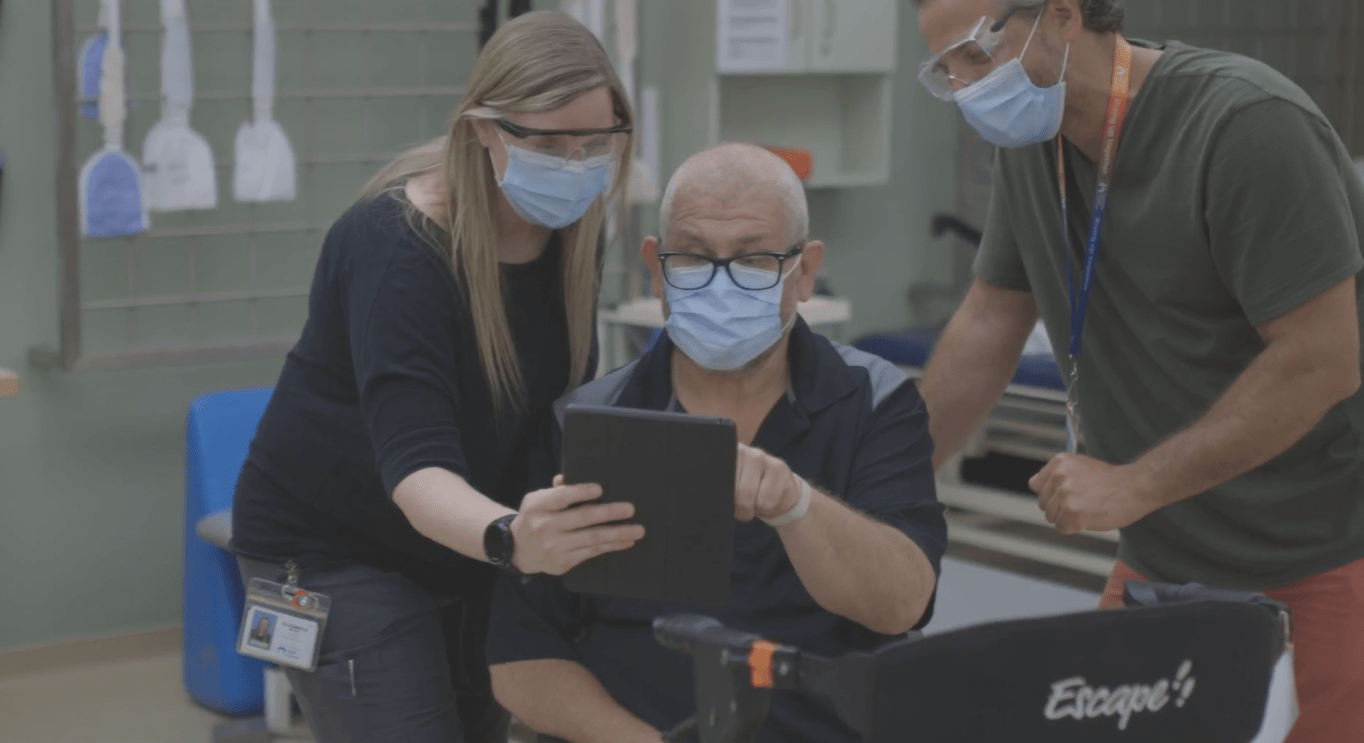
Connecting the dots between health care providers with EpicCare Link
It’s only 11 o’clock in the morning and already it feels like it’s been a very long day.
Between getting the kids ready for school, dropping the dog off at the vet, and juggling a few conference calls in the car in between, you don’t have much mental bandwidth left.
And yet in a few minutes, you have an appointment with your family physician about some health challenges you’ve been experiencing. Last weekend you spent some time in the emergency department (ED) at Hamilton Health Sciences (HHS), and you want to talk to your family doctor about how things went and what the next steps in your care will be.
You sigh heavily and wrack your brain, trying to remember everything about the ED encounter so you can update your family doctor. You’re pretty sure you’ll know what to say, but you’re tired and you have a lot on your mind. What if you forget something important the doctor needs to know?
You start to jot down a few points, but the trip to the ED was a week ago and a lot has happened since then.
You wish there was a better way for everyone involved in your care to communicate with each other.
A better way is coming
In June 2022, HHS will go live with Epic, a new digital hospital information system (HIS) that promises seamless care for patients and their health care teams – inside and outside the hospital’s walls.
For providers external to HHS, this will be possible through a tool called EpicCare Link.
EpicCare Link will extend access to HHS health care records to select approved community providers, like family physicians, long-term care facilities, homecare community support teams and mental health organizations. EpicCare Link has other features to improve communication and collaboration, too.
“Through EpicCare Link, external health care providers will be able to exchange secure messages about patients with HHS staff and physicians. They will also be able to place orders, make referrals and provide supporting documentation,” says Dr. Rob Lloyd, chief medical information officer, who sits on the interoperability workgroup tasked with making decisions about how HHS will use EpicCare Link. Interoperability refers to the ways different information systems, devices and applications can cooperatively use data in a coordinated manner, and across organizational boundaries, to provide timely and seamless patient care.
A 360 degree view of access and privacy
Because EpicCare Link impacts many aspects of patient care, the membership of the interoperability workgroup is deliberately multidisciplinary, and includes physicians, nurse practitioners, decision support and health information staff, HHS’ chief of family medicine, chief of interprofessional practice, director of patient experience, chief information officer and chief medical information officer, as well as some community physicians.
Protecting patients’ personal health information is an obligation HHS takes very seriously, and that’s why HHS’ legal counsel and chief privacy officer are part of the workgroup, too.

Dr. Rob Lloyd is HHS’ Chief Medical Information Officer
“It’s vital that we make sure we’re extending access appropriately,” says Lloyd, explaining that the scope of access to EpicCare Link’s functionality will vary across providers. For example, a family physician may be able to see a patient’s entire health record, while a social worker may only be able to use the tool to review notes. “With guidance from legal counsel and the chief privacy officer, HHS is developing a process to protect patients’ privacy, and anyone who requests access will need to agree to HHS’ terms and conditions.”
Benefits for patients and providers
By giving external providers a window into HHS’ health records, EpicCare Link will take the onus off of patients to remember the details from every HHS encounter. For health care providers, it will eliminate delays in getting important information they need to make the best care decisions for patients in a timely fashion.
Lloyd says that a lot of people are looking forward to these changes. “It’s exciting to know that, in the future, many providers and organizations HHS works with will have access to the same robust tool so that we can continue to work together to provide the best care for everyone in our community.”
Project Odyssey is HHS’ journey to implementing Epic and becoming a fully digital hospital in June 2022. Stay up-to-date with the project on our webpage.



